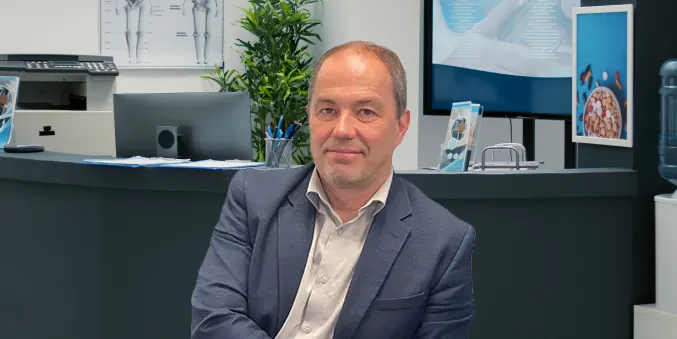At Neuroplasticity MD, we focus on providing lasting solutions to help you overcome the challenges PTSD brings. Our approach combines immediate relief with long-term support, empowering you to take back control and move toward a brighter future. If traditional treatments haven’t worked for you, Ketamine therapy offers a promising alternative. With the potential to alleviate PTSD symptoms in minutes or hours, it offers a faster route to healing compared to conventional medications.

PTSD (post-traumatic stress disorder) is a prevalent anxiety disorder that often develops after an individual experiences a traumatic or life-threatening event. In some cases, even the shock of witnessing a traumatic event can be enough to trigger the onset of PTSD symptoms. These symptoms can manifest in a variety of ways, such as intrusive thoughts, flashbacks, emotional numbness, sleep disturbances, and avoidance behaviors. Ketamine For PTSD can severely impact a person’s daily functioning, making it difficult to perform routine tasks and maintain relationships.
Symptoms of PTSD vary from person to person but often involve intense emotional responses, including anxiety, depression, and irritability. Many individuals with PTSD experience nightmares and flashbacks, causing them to relive the traumatic events. Feelings of guilt, shame, and hopelessness are common, and individuals may try to avoid certain situations, people, or places that remind them of the trauma. These symptoms can significantly alter a person’s perception of the world, making it challenging to find a sense of normalcy.
There are various types of traumatic events that can lead to PTSD. While combat exposure is one of the most widely recognized triggers, PTSD can also develop following childhood abuse, sexual violence, physical assault, and domestic violence. Other potential causes include car accidents, natural disasters, or witnessing a criminal act. First responders who encounter traumatic events in their line of work are also at risk of developing PTSD, particularly if they have not received adequate trauma training or emotional support.
Recent studies have highlighted the potential benefits of low-dose ketamine infusion therapy for individuals suffering from PTSD. Ketamine works by targeting NMDA receptors in the brain, which are responsible for regulating emotional reactions and stress responses. By increasing the release of glutamate, a neurotransmitter that plays a role in memory and brain activity, ketamine can help rewire neural pathways. These changes in brain patterns can bring much-needed relief from PTSD symptoms, and unlike traditional medications, ketamine can work much faster, often delivering results within hours rather than weeks or months.
Ketamine’s rapid onset of action offers a distinct advantage over traditional antidepressants. While many medications take weeks to show significant effects, ketamine can alleviate symptoms within hours of treatment. This makes ketamine a highly effective option for individuals with treatment-resistant PTSD, providing a new avenue for recovery. The therapeutic effects of ketamine can last for up to seven days, helping individuals experience a marked reduction in symptoms and improving their overall quality of life.
By restoring balance to neurotransmitter systems and increasing the activity of specific brain receptors, ketamine therapy offers substantial benefits for individuals with PTSD. It can help reduce the frequency and intensity of flashbacks, nightmares, and intrusive thoughts. For those who have not found relief with traditional therapies, ketamine presents a promising alternative that can help them regain control of their lives and take steps toward healing. At Neuroplasticity MD, we offer cutting-edge ketamine therapy for PTSD, providing a compassionate and effective solution for those suffering from PTSD.


Racemic ketamine, which is administered intravenously, goes directly to the patient’s bloodstream.
IV infusions provide a reliable and efficient method for administering this treatment, ensuring rapid absorption and effectiveness.
A quick-working nasal spray, offering quick relief of depression. It is an option that is typically covered by insurance.
These injections are delivered into the thick muscles of your arm, thigh, hip, or buttocks.

With a 25-year career as a psychiatrist, I have studied under influential experts in New York and Boston, delving into inpatient and outpatient care, research, and student supervision. Modern neuroscience guides me in addressing countless parent-child issues. Being part of this movement and sharing knowledge is a privilege. Having worked in esteemed institutions like Beth Israel at Mount Sinai, Tufts Medical Center, and Rutgers, I offer top-tier care, enriched by current research, while my passion lies in aiding those in need.
of patients report improvements in depression and anxiety within 4 weeks.
Ketamine For PTSD Treatment affects various areas of the brain, including the cerebral cortex, which plays a key role in processing thoughts and emotions related to trauma. Research indicates that traumatic events can disrupt the functioning of specific brain synapses, causing neurotransmitters to misfire over time. This disruption can intensify PTSD symptoms. At Neuroplasticity MD, Ketamine treatment works by stimulating the brain to release glutamate, a neurotransmitter crucial for the regeneration and repair of damaged neural connections.
Ketamine has been shown to effectively reduce suicide risk in individuals suffering from PTSD. It is particularly beneficial for combat veterans who experience some of the most severe PTSD symptoms. Additionally, individuals with co-occurring conditions like depression find relief from both disorders through Ketamine therapy. This provides an integrated treatment solution, enabling patients to manage multiple symptoms with one effective therapy, instead of relying on a mix of medications.
PTSD (post-traumatic stress disorder) is a common anxiety disorder that can develop after experiencing a traumatic or life-threatening event. Sometimes, even witnessing a traumatic event can trigger the symptoms of PTSD.
Symptoms of PTSD can vary, but they often include flashbacks, low self-esteem, insomnia, and intrusive thoughts. These symptoms can sometimes distort or weaken your memory of the traumatic experience. Other signs may include avoiding triggers or feeling self-blame and guilt. Although these challenges can make daily life difficult, Ketamine Therapy For PTSD can provide relief at Neuroplasticity MD.
While combat exposure is often linked to PTSD, several other events are also known to trigger this condition, such as childhood abuse, sexual violence, domestic violence (physical, verbal, or sexual), physical assault, witnessing a crime, car accidents, or the loss of a loved one. Events like fires, natural disasters, or plane crashes can also lead to PTSD. First responders, too, may experience PTSD after responding to emergencies, especially if they haven’t received proper trauma training or support.
Every potential candidate for ketamine infusion therapy undergoes a consultation to assess their medical history, symptoms, and whether this treatment is appropriate for their needs.
People with PTSD often respond intensely to situations or objects that remind them of the trauma. For example, the sound of a car backfiring may trigger memories of gunfire, or passing the site of an accident may bring back vivid details of the incident. Even hearing about a health condition related to the loss of a loved one, or a familiar smell or sound, can act as a trigger. Since these triggers occur regularly in daily life, managing your response becomes essential, making treatment like ketamine infusions at Neuroplasticity MD crucial.
PTSD affects the brain’s cerebral cortex, responsible for thought processes during and after trauma. Following a traumatic event, certain synapses in the brain malfunction and neurotransmitters misfire later in life. Ketamine stimulates the release of glutamate, a hormone involved in neural regrowth and repair. This helps rewire the brain and promote healing, potentially reducing symptoms like flashbacks and nightmares. Ketamine treatment at Neuroplasticity MD has also been shown to lower suicide rates and is effective for individuals with co-occurring conditions like depression.
Untreated PTSD can lead to the development of other issues like anxiety disorders and depression. In severe cases, individuals may consider suicide as an escape from their symptoms. If left untreated, PTSD can severely impact daily activities, such as work, social interactions, or even sleep, leading to a drastic decline in quality of life.
While PTSD symptoms usually begin soon after a traumatic event, they can emerge years later when life circumstances trigger a person’s brain responses. This is common with childhood trauma that may have been suppressed and resurfaced later in life. If symptoms appear years after the event, it’s important to seek professional help at Neuroplasticity MD.
Many insurance companies, along with Medicare, typically exclude coverage for infusion ketamine therapy but do cover intranasal ketamine (Sparavato).
No. To ensure your safety, we kindly request that you arrange for a designated driver to accompany you to the procedure. We also advise refraining from operating heavy machinery for 24 hours starting from the time of your treatment.
Happiness is a journey, not a destination. Learn how a
personalized treatment approach may help you break free and create a tomorrow full of infinite possibilities.
Our united team offers personalized care rooted in cutting-edge knowledge and unwavering compassion. With diverse backgrounds and specialties, we address a range of mental health concerns, guiding you to relief and growth.
Empowerment, resilience, and personalized attention define our approach. We are here to support you every step of the way, creating a safe space for exploration. Choose us for skilled, empathetic care. Your well-being matters and our team is committed to your success.

Take this next step, we’ll help with the others.
440 West Street, Suite 318 Fort Lee, NJ 07024
Office 94 valley Rd , Montclair , NJ 07042
440 West Street, Suite 318 Fort Lee, NJ 07024
Office 94 valley Rd , Montclair , NJ 07042
Disclaimer: The medical information on this site is provided as an information resource only, and is not to be used or relied on for any diagnostic or treatment purposes. This information is not intended to be patient education, does not create any patient-physician relationship, and should not be used as a substitute for professional diagnosis and treatment. Always consult your healthcare provider before making any healthcare decisions or for guidance about a specific medical condition.